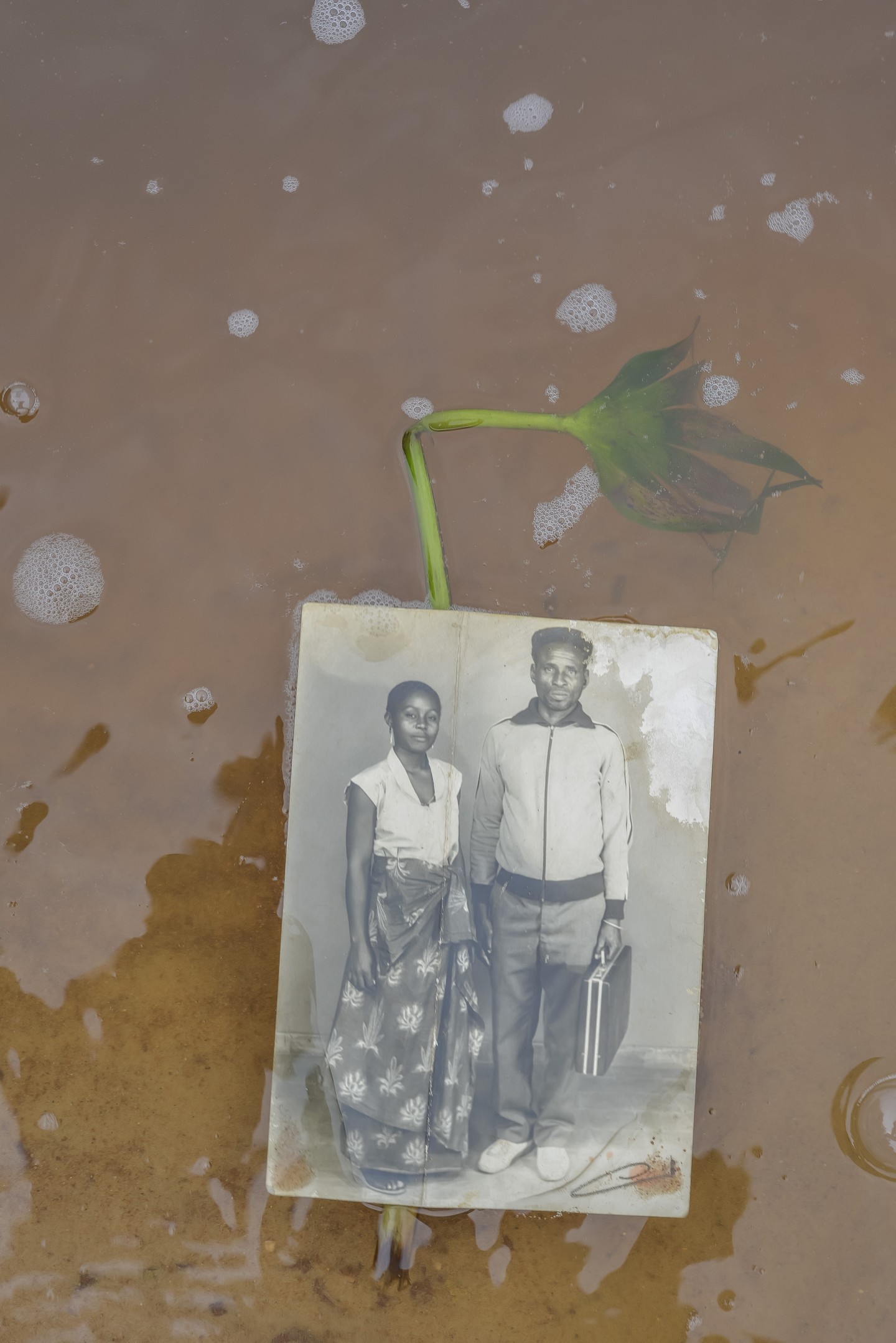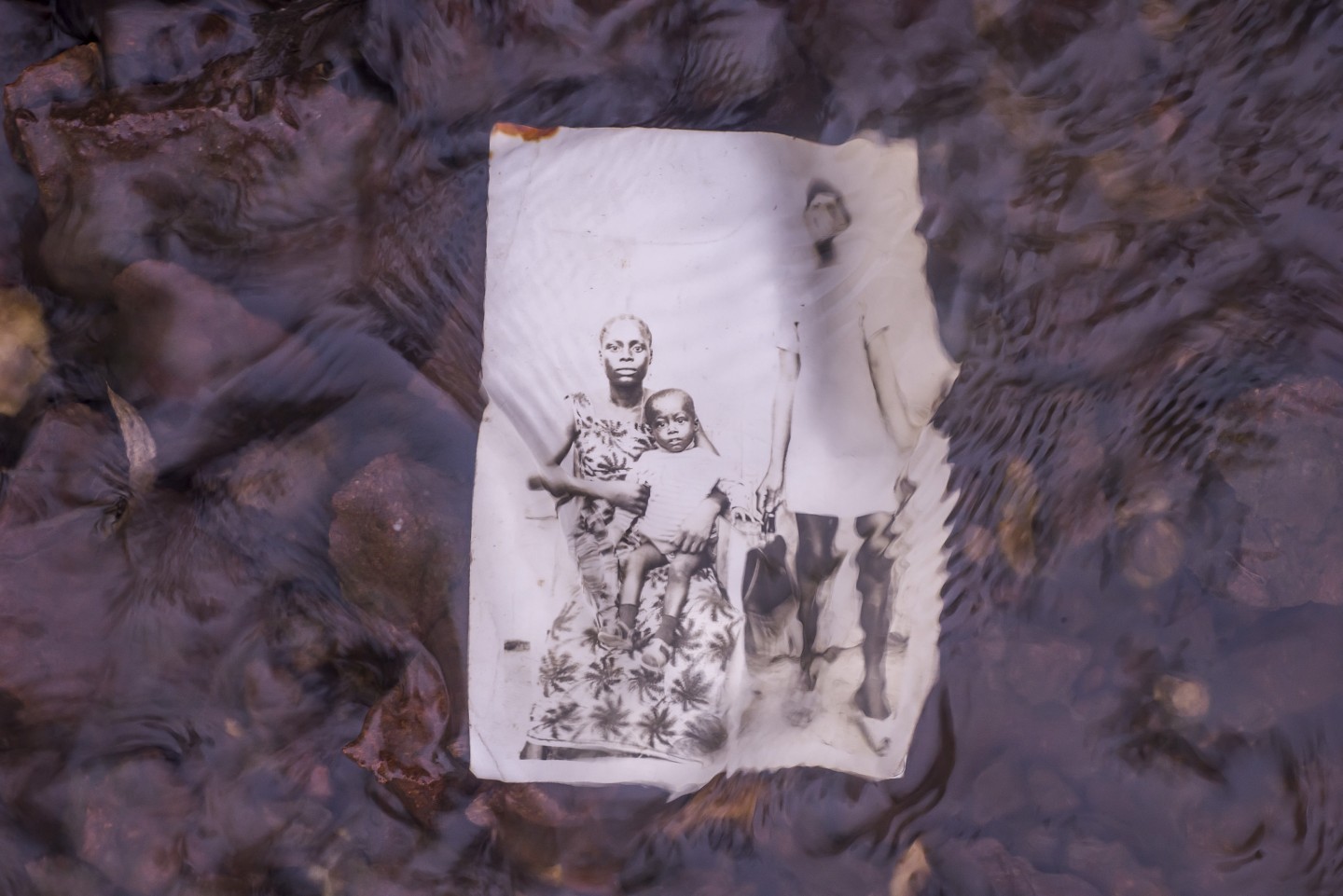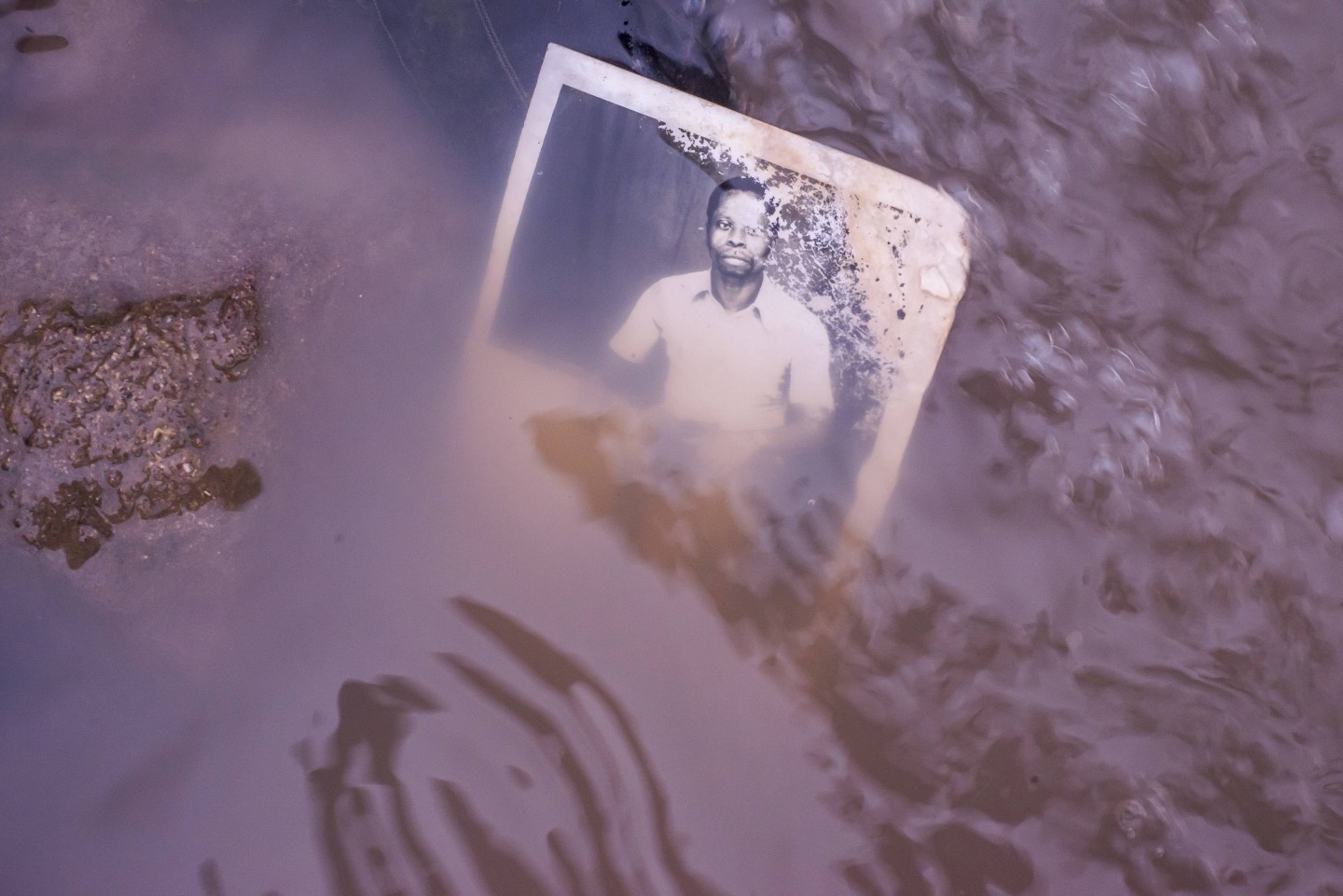Perpetual Disconnection is a research project looking at personal identity and the practices of traditional African societies. It is about the abstract links that connect, imply and infer concrete facts in relation to potential spiritual causes, or to powers that are difficult to explain. Since my childhood, I have noticed these links in my family.
This subject has become a personal and artistic problematic that I scrutinise, and at the same time it creates a way of dealing with my family. Perpetual Disconnection offers a field of exploration and questioning around the weight and the duality of the traditional African society and its standards, and what is known as a modern society with its corollaries. Working with the medium of photography already has implications within this cultural and social history.
My story started to take shape in 2015. One day when I was playing in my father's dugout (canoe) I did a backflip in the N'djili river. I was used to it but this time I dived so deep in the water that panic flooded me. I felt I had reached the end when suddenly a hand pressed and pulled me up. Once at home my father told me that our family had a special connection to the water and with crocodiles. The crocodile is the totem of our family.
My work explores the history and myths of my family fuelled by a lack of connection with my origins. I try not only to write my story but also to relive those moments before my time. I use archival photographs as a way to explore this. Through this perspective, where photography crosses time and space, the reverse sides of my images and the inscriptions which appear there: dates, places, memories, legends are also included to express this journey.




